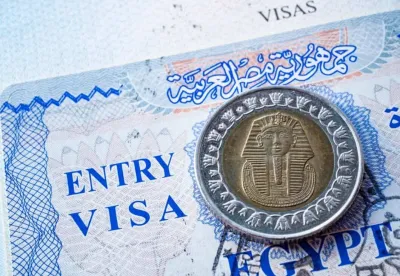
Blockchain technology is the focus of many companies these days contemplating its benefits. Blockchain in tourism also has its future according to experts.
Blockchain is now being tested by some companies in the financial industry and other sectors, and already applied in daily operations. Where the journey goes, experts have not yet agreed. The hype surrounding Bitcoin and the speed at which cryptocurrencies spread, already has visible global implications for the economy, states and society. And one can guess the consequences of the underlying technology – the Blockchain – in the future.
What is a blockchain?
The blockchain can be thought of as a digital account book or cash book. If a transaction takes place, the corresponding data is registered on the block chain in a block, encrypted and appended to the block chain. A special feature here is that the account book or the blockchain is not located on a server but is distributed in a network of countless computers. Each of these computers has an identical version of the blockchain.
Blockchain in tourism?
So far, there are hardly any realized projects and business model in the travel industry that demonstrate the potential of the blockchain for tourism. However, there are some projects in development towards the future.
An example is Spanish blockchain start-up Amadeus. In 2017 it released a whitepaper that outlines four possible use cases for the blockchain: optimizing customer loyalty programs, real-time baggage tracking, simplifying contracting in tourism and improving the identity of a person during a trip.
Another is Avinoc, an Austrian-Hong Kong aviation start-up which is planning a booking platform on Blockchain for the optimization of empty flights. First of all, focus is put on business flight, after which one looks at the larger airlines.
Reducing empty flights not only saves costs but also protects the climate. This seems to be well received on social networks, because Avinoc already has more than 150,000 fans across various platforms although founder Robert Galovic and his crew started just a few weeks ago.
Some airlines as German low-cost carrier Eurowings or some companies in the Middle East have already expressed their interest in working with Galovic and co. The ambitious team based in Hong Kong and Graz is doing very well and could make a breakthrough in the fight against travel giants.

Winding Tree: The next Booking.com?
For some time, this name is buzzing through the tourism and block chain industry. Behind this is a decentralized database based on blockchain technology and intended to act as a B2B distribution network for tourism services.
This makes Winding Tree not a classing company, but a DAO (Decentralized Autonomous Organization) – an organization that only exists on the blockchain. All information, processes and decisions are handled in a decentralized manner. Even the financing of a DAO takes place via the blockchain by means of a specially created cryptocurrency. In case of Winding Tree, the coin is called LIF.
After an extensive test phase, Winding Tree is to create a decentralized marketplace where hotels, airlines or tour operators can meet customers directly with their own, blockchain-based applications. Winding Tree will serve as an innovation platform for the industry, without striving for power and profit maximization. Thus, the start-up relies on a business model, which would act exactly opposite to major players such as Booking, Expedia or Airbnb.
The idea is so interesting that companies like Lufthansa or Air New Zealand have joined the project. The partners hope to gain their independence from intermediary platforms and to be able to offer their offers and services directly to the consumer.
However, looking closely at Winding Tree, there are also questions. What happens when criminals suddenly bring counterfeit hotels to the marketplace? Does the transparency of Blockchain cause a contractor to see that he has to pay more to buy a service than a competitor, even if it remains anonymous? Do we want all bookings to be on Blockchain forever?
Travel giant TUI
The tourism company TUI has apparently recognized the signs of the times and is currently implementing its own internal blockchain called Bed Swap. It optimizes the load control of hotel beds and transnational transaction processes. According to TUI boss Fritz Joussen, the system proves its worth and costs are saved.
One thing is certain. Crypto-companies will come and go, grow and disappear again. But the bubble of Blockchain will not burst. We will see even more applications of blockchain in tourism towards the future. And the tourists themselves? They probably do not care where they book, as long as the offer fits and the quality and price are right.










